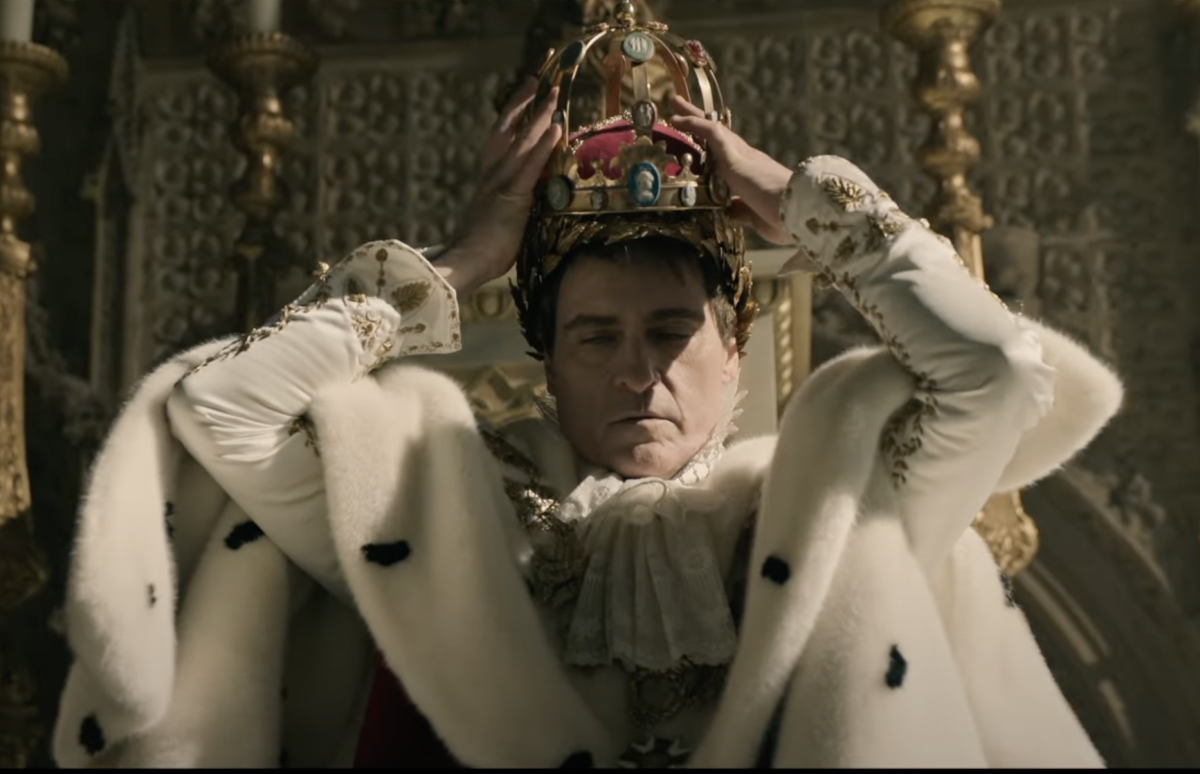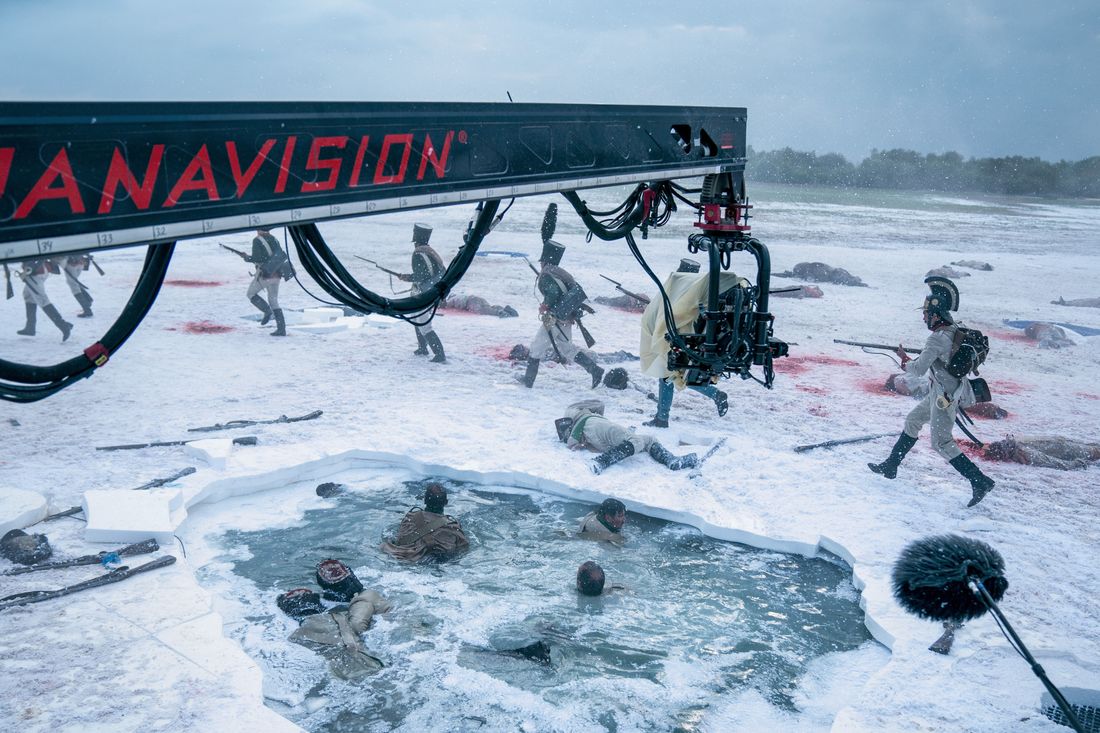Napoleon is finally out and…it’s okay. Part of the problem with Ridley Scott’s latest is how often it strays from the historical text. Scott has cited we weren’t there to analyze history firsthand, but many who were alive during the Napoleonic Wars did document their lives via journals or memoirs, including Napoleon himself. So I wanted to look at some, not all, of the deviations in the film and rectify some of that history.
Fact: He Did Fire Grapeshot at a Crowd In Paris During The Vendémiaire Uprising
One of the more shocking acts that Napoleon commits happens fairly early on in the movie when he’s tasked with stopping French Royalists who were rising up against the newly formed government. Being a trained artilleryman, Napoleon opted to use “grapeshot” ammunition on the crowds in the streets to put an end to the uprising. Historian Thomas Carlyle cites this act in The French Revolution: A History in the section “A Whiff of Grapeshot“.

Fiction: Napoleon Did Not Fire Canons At The Pyramids
One of the most striking shots in the film is when Napoleon’s army faces off against the Mamluk at the Battle of the Pyramids and opens fire on the Great Pyramids of Giza. The rubble tumbles down the pyramids and the sound spooks the leader of the Mamluk army. But not once did Napoleon’s army shoot at the pyramids, we’d have ample proof of that with canon holes in the monuments but none exist, nor was such an act ever documented.

Fact: Napoleon Did Crown Himself
During his coronation at Notre Dame, Napoleon snags a crown from the pope (a replica, not one he happened to find as he states) and places said crown on his head. The reaction from the crowd speaks of the audacity of such a move and fitting his bold character, Napoleon did indeed crown himself and immediately removed said crown from his head, opting to keep the laurels upon his head much like Caesar.

Fiction: No Lake Was Fired Upon At Austerlitz
The Battle of Austerlitz was considered a defining moment for Napoleon, where the new Emperor outmaneuvered both the Austrian Emperor and the Russian Tsar in a decisive victory. While the scene in the film was certainly epic and entertaining, in real life, Napoleon did not fire canons at a frozen lake and drown the opposing army because the battle did not take place near a lake. The biggest bodies of water were some small ponds and Napoleon’s army seemingly fired on the frozen ponds, causing the Austrians and Russians to have to negotiate unpredictable and perhaps dangerous terrain, but I couldn’t find anything about the battle taking place near a lake.

Fiction: Napoleon Did Not Join The Cavalry Charge At Waterloo
Ridley Scott and writer David Scarpa made a point to portray Napoleon as daring and as a “man of the army”, riding off into battle and putting his life in danger in bold and daring cavalry charges. But Napoleon was known for his terrible horseman ship and would often stay away from the animals, which prevented him from ever charging into battle. So the heroic last stand charge at Waterloo was a complete farce, as Napoleon stayed behind the lines giving orders, ignoring key intelligence, and dealing with insubordination from the likes of Michel Ney (in the movie, by the way), for the duration of the four-day battle.

Fiction Napoleon Never Met Wellington
After the Battle of Waterloo, Napoleon is taken prisoner aboard the HMS Bellerophon and has a face-to-face encounter with his British counterpart, Arthur Wellesley, 1st Duke of Wellington. While the scene was meant to show the two titans sharing a space together at the end of the Napoleonic Wars, the two men never actually met in real life. But Napoleon was on the ship and did inspect the British troops, citing “How much might be done with a hundred thousand such soldiers as these”.

This isn’t every piece of fact or fiction in the film, but it’s some of the most notable. What did you think of Napoleon? Should Ridley Scott have stuck closer to the historical record on this one?

2 thoughts on “‘Napoleon’ Fact or Fiction – ScreenHub Entertainment”